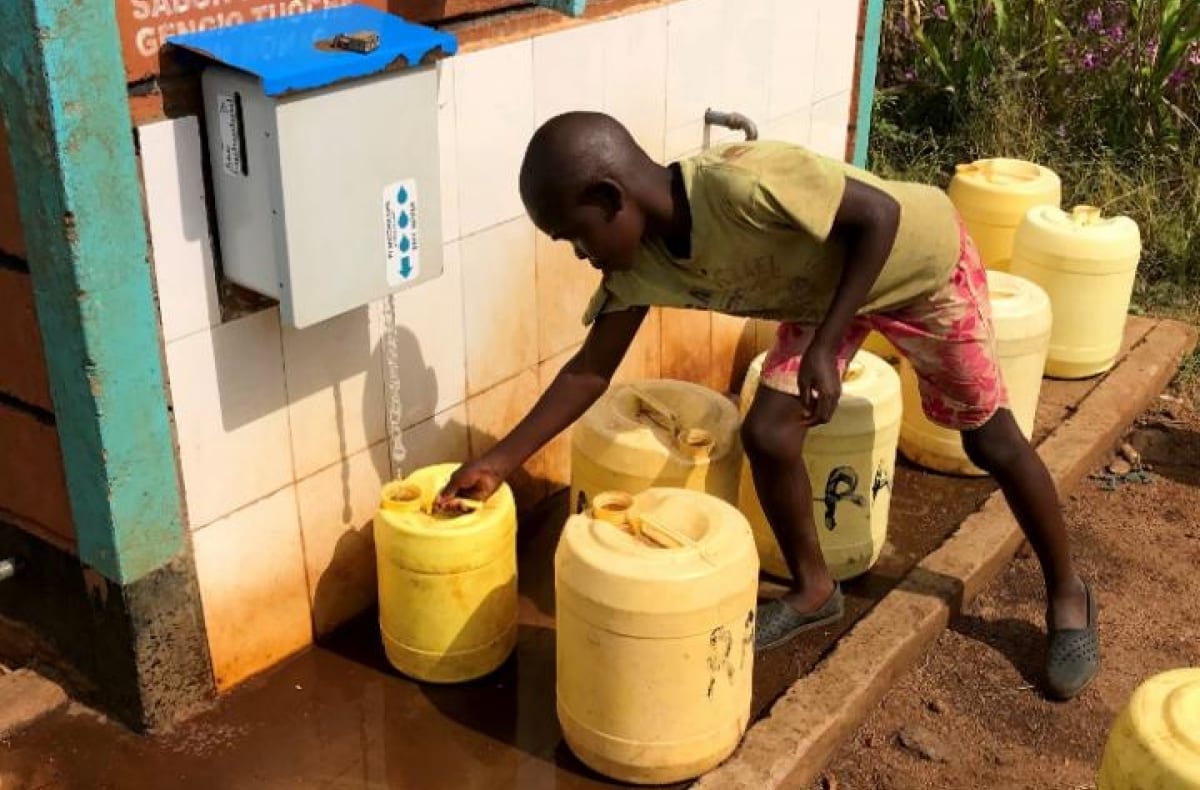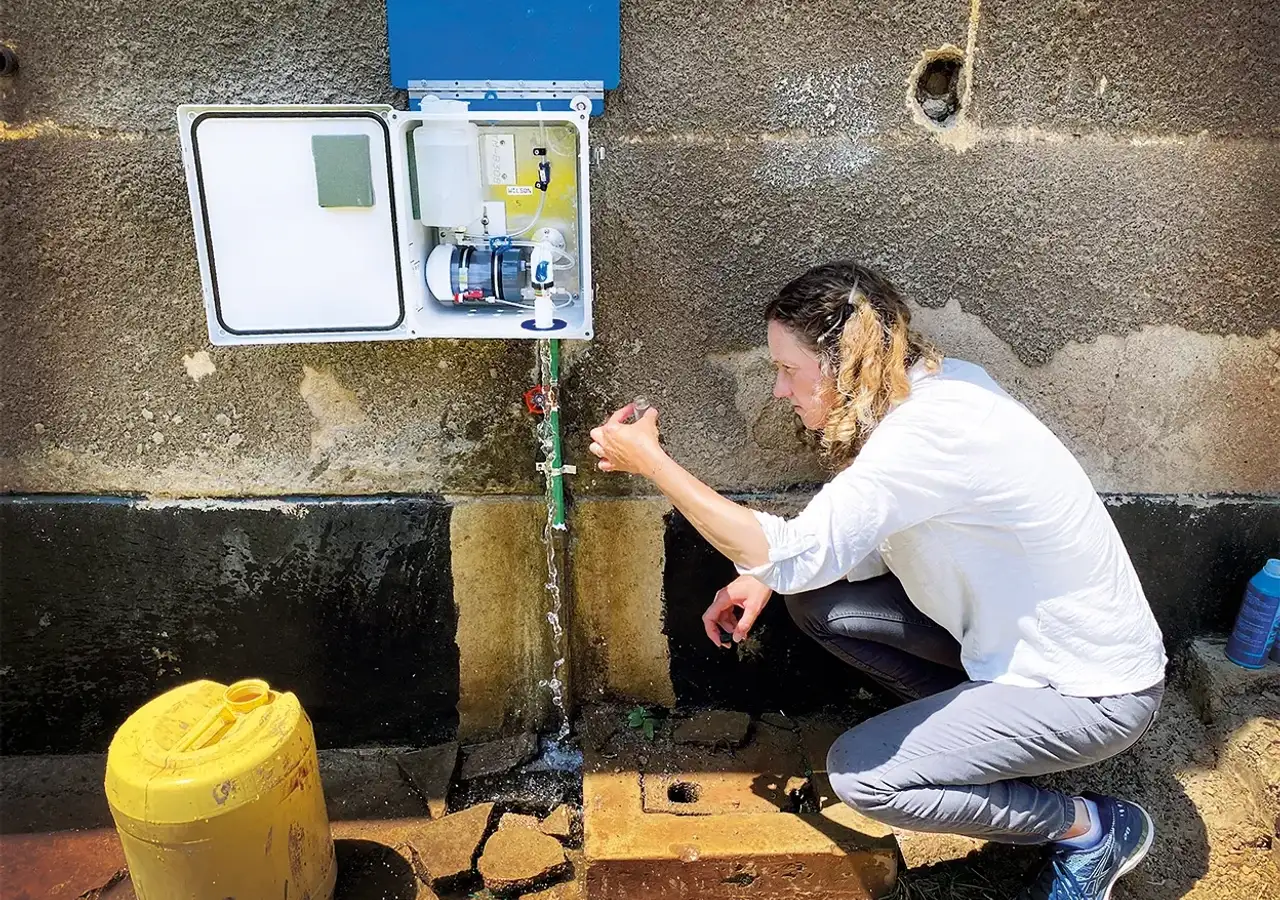Turitap

Location
Kenya
Sector
Water, Health
Type of Investment
Grant
Project Stage
Test & Transition
Length of Investment
2023+
Website
Investment Overview
Turitap is a passive chlorination device that automatically adds chlorine to water at the point of water collection without moving parts or electricity, making it easier for users to safely clean water for drinking and other uses.
The Development Challenge
More than 2 billion people around the world lack access to safely managed drinking water facilities, which are particularly limited in settings such as school and healthcare facilities (HCFs). A recent assessment of WASH in HCFs in 54 low- and middle-income countries found that 38% of HCFs do not use an improved water supply, 19% do not have access to improved sanitation, and 35% do not have hand-washing facilities. HCF water systems have been implicated as a source of waterborne infection for patients, including birthing mothers and neonates, yet there is a lack of cost of cost-effective or well-evidenced scalable interventions to improve water quality in these settings.
The Innovation
Turitap is a passive chlorinator that automatically doses chlorine at the point of water collection. Chlorination improves water quality by inactivating harmful microorganisms and reducing diarrheal disease; a recent systematic review found that chlorination can reduce the odds of all-cause child mortality of about 30%. However, existing dosing methods place the burden for water treatment on individual users and even small declines in compliance result in large reductions in potential health benefits. Passive chlorination is a promising alternative as dosing is automatic and integrated with existing outlets, meaning there is little behaviour change required on the part of the user. The Turitap has some competitive advantages: it has a low retail price and and uses widely available liquid chlorine as opposed to proprietary tablets. The Turitap was developed by teams at Stanford University, MSR Global Health and the Pickering Lab at University of California, Berkeley (UCB).
Our Investment
GIF awarded a test and transition grant of $750,000 in 2023 to UCB focussed on generating learning on how the Turitap performs and its retail potential. Further, GIF investment will enable UCB to develop and validate an operational model for how the Turitaps can be used in Healthcare facilities as well as undertake randomised evaluation to assess its impact on health outcomes and cost-effectiveness of the device in healthcare settings. The evaluation is focussed on how this device improves health outcomes for mothers giving birth and neonates. This evidence and learning will inform both private sectors and public sector scale strategies.

Progress to date
UCB has established a new supply chain for production and assembly of the TuriTap and received all product safety certifications to enable it to launch in the retail market in 2025. It has been installed in 18 healthcare facilities across four Kenyan counties, with these facilities treating around 36,000 patients each month. The randomised evaluation is underway with initial results and cost effectiveness analysis expected in 2026. Baseline data showed that health care facilities without TuriTaps typically don’t treat their water, and mothers and newborns are typically exposed to high levels of bacteria after delivery, underscoring the need for these types of interventions. Alongside this testing, the team behind the TuriTap have launched Mangrove Water to promote in-line chlorination and support utilities and governments to explore its use within their infrastructure.
The Turitap in numbers
proportion of child births in Kenya delivered in an environment with improved water (Gon et al. 2016).
reduction in diarrhoea among children in Bangladesh using water from passive chlorination as compared to those receiving water treated with vitamin C.
reduction in the odds of all-cause child mortality when water has been chlorinated.